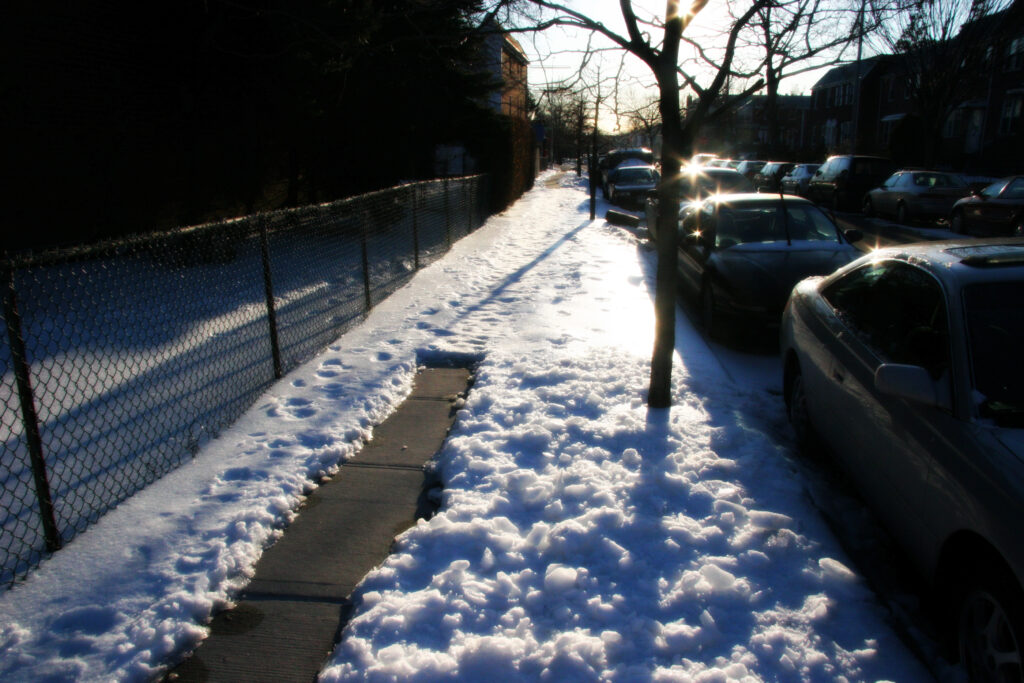Can I Use Safe Paw or Safe Thaw on New Asphalt? Here’s What You Should Know


When winter weather arrives and surfaces turn slick, it’s natural to reach for a reliable ice melt. But if you’ve just had new asphalt installed, you might pause and wonder: Is it safe to use products like Safe Paw or Safe Thaw on freshly laid asphalt? The good news is—yes, you can use them safely. Unlike concrete, new asphalt doesn’t face the same risks from chloride-free ice melts. However, there are still a few important considerations.
Understanding Asphalt vs. Concrete in Winter
Concrete and asphalt behave very differently in winter. Concrete is rigid and porous, making it vulnerable to freeze-thaw cycles and chemical reactions with aggressive deicers. That’s why sealing concrete is critical, especially before using any deicing agent.
Asphalt, on the other hand, is a petroleum-based material with more flexibility and natural water resistance. It doesn’t absorb moisture the same way concrete does, and it’s less likely to crack under freezing conditions. Because of this, chloride-free deicers like Safe Paw and Safe Thaw pose minimal risk to new asphalt surfaces.
Asphalt, on the other hand, is a petroleum-based material with more flexibility and natural water resistance. It doesn’t absorb moisture the same way concrete does, and it’s less likely to crack under freezing conditions. Because of this, chloride-free deicers like Safe Paw and Safe Thaw pose minimal risk to new asphalt surfaces.
Can Ice Melt Be Used Immediately on Fresh Asphalt?
Technically, you can use Safe Paw or Safe Thaw on new asphalt shortly after it’s cured enough to handle foot or vehicle traffic. That said, giving the asphalt a brief settling period of a few days to weeks—depending on weather and thickness—is generally advisable to ensure it’s fully compacted and stable.
Unlike concrete, asphalt doesn’t need a surface sealer before applying a deicer, though some sealants may still be used for UV protection or long-term durability. But in terms of ice melt application, you don’t have to worry about sealing beforehand.
Asphalt, on the other hand, is a petroleum-based material with more flexibility and natural water resistance. It doesn’t absorb moisture the same way concrete does, and it’s less likely to crack under freezing conditions. Because of this, chloride-free deicers like Safe Paw and Safe Thaw pose minimal risk to new asphalt surfaces.
Unlike concrete, asphalt doesn’t need a surface sealer before applying a deicer, though some sealants may still be used for UV protection or long-term durability. But in terms of ice melt application, you don’t have to worry about sealing beforehand.
Asphalt, on the other hand, is a petroleum-based material with more flexibility and natural water resistance. It doesn’t absorb moisture the same way concrete does, and it’s less likely to crack under freezing conditions. Because of this, chloride-free deicers like Safe Paw and Safe Thaw pose minimal risk to new asphalt surfaces.
Why Safe Paw and Safe Thaw Are Ideal for Asphalt
Many common ice melts rely on chlorides like calcium chloride or magnesium chloride, which can damage not only concrete but also strip oils from asphalt over time. This can lead to premature drying, brittleness, or surface degradation.
Safe Paw and Safe Thaw are chloride-free, non-corrosive, and non-toxic, making them ideal for asphalt surfaces—especially newly paved ones. They won’t leach oils, don’t cause thermal shock, and are safe to use around pets, plants, and nearby landscaping.Unlike concrete, asphalt doesn’t need a surface sealer before applying a deicer, though some sealants may still be used for UV protection or long-term durability. But in terms of ice melt application, you don’t have to worry about sealing beforehand.
Asphalt, on the other hand, is a petroleum-based material with more flexibility and natural water resistance. It doesn’t absorb moisture the same way concrete does, and it’s less likely to crack under freezing conditions. Because of this, chloride-free deicers like Safe Paw and Safe Thaw pose minimal risk to new asphalt surfaces.
Safe Paw and Safe Thaw are chloride-free, non-corrosive, and non-toxic, making them ideal for asphalt surfaces—especially newly paved ones. They won’t leach oils, don’t cause thermal shock, and are safe to use around pets, plants, and nearby landscaping.Unlike concrete, asphalt doesn’t need a surface sealer before applying a deicer, though some sealants may still be used for UV protection or long-term durability. But in terms of ice melt application, you don’t have to worry about sealing beforehand.
Asphalt, on the other hand, is a petroleum-based material with more flexibility and natural water resistance. It doesn’t absorb moisture the same way concrete does, and it’s less likely to crack under freezing conditions. Because of this, chloride-free deicers like Safe Paw and Safe Thaw pose minimal risk to new asphalt surfaces.
Avoiding Overuse and Piling
While asphalt is more forgiving than concrete, it’s still wise to apply any deicing product evenly and sparingly. Avoid piling ice melt in one spot or using more than necessary. Over-application can create slush build-up or track particles indoors unnecessarily.Safe Paw and Safe Thaw are chloride-free, non-corrosive, and non-toxic, making them ideal for asphalt surfaces—especially newly paved ones. They won’t leach oils, don’t cause thermal shock, and are safe to use around pets, plants, and nearby landscaping.Unlike concrete, asphalt doesn’t need a surface sealer before applying a deicer, though some sealants may still be used for UV protection or long-term durability. But in terms of ice melt application, you don’t have to worry about sealing beforehand.
Asphalt, on the other hand, is a petroleum-based material with more flexibility and natural water resistance. It doesn’t absorb moisture the same way concrete does, and it’s less likely to crack under freezing conditions. Because of this, chloride-free deicers like Safe Paw and Safe Thaw pose minimal risk to new asphalt surfaces.
Asphalt, on the other hand, is a petroleum-based material with more flexibility and natural water resistance. It doesn’t absorb moisture the same way concrete does, and it’s less likely to crack under freezing conditions. Because of this, chloride-free deicers like Safe Paw and Safe Thaw pose minimal risk to new asphalt surfaces.
Conclusion: Safe for Use—Even on New Asphalt
If you’ve recently had new asphalt installed, you can feel confident using Safe Paw or Safe Thaw. These products are engineered to work effectively without damaging newer surfaces, offering peace of mind during the first freeze of the season. As long as your asphalt is compacted and traffic-ready, you don’t need to wait weeks before treating it. Choose chloride-free, pet-safe deicers and apply them responsibly—and your new blacktop will stay safe, strong, and slip-free all winter long.
Asphalt, on the other hand, is a petroleum-based material with more flexibility and natural water resistance. It doesn’t absorb moisture the same way concrete does, and it’s less likely to crack under freezing conditions. Because of this, chloride-free deicers like Safe Paw and Safe Thaw pose minimal risk to new asphalt surfaces.
Asphalt, on the other hand, is a petroleum-based material with more flexibility and natural water resistance. It doesn’t absorb moisture the same way concrete does, and it’s less likely to crack under freezing conditions. Because of this, chloride-free deicers like Safe Paw and Safe Thaw pose minimal risk to new asphalt surfaces.
Air EntrainmentAir Entrainment In ConcreteBest Concrete Mix For Cold ClimatesConcrete Cracking WinterConcrete Safe Ice MeltConcrete Surface Flaking WinterEco Friendly Ice MeltFreeze-Thaw Cycles ConcreteHow To Protect Concrete In WinterIce Melt For Pet OwnersIce Melt Safe For DrivewaysMicroscopic Air Bubbles ConcreteNon-Toxic Ice Melt For PetsPet Safe Ice MeltSafe PawSafe Paw FAQSafe Paw Ice MeltSafe Paw QNASafe Paw ReviewsSafe Paw Vs Rock SaltSalt Free Ice MeltScaling In ConcreteSealing Concrete For WinterWinter Concrete Durability